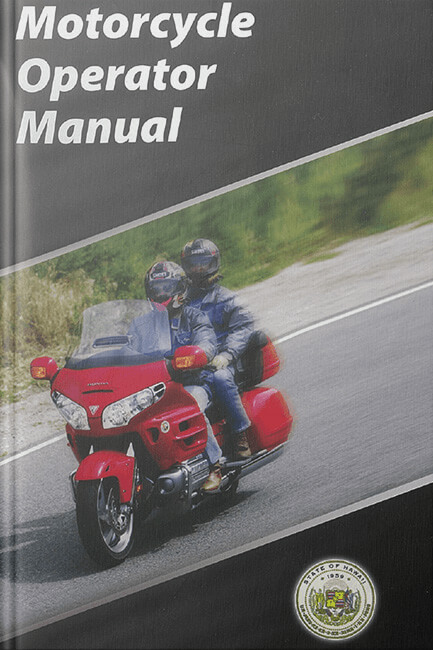Hawaii Motorcycle Manual Driver's Manual
To make studying easier, the Hawaii DMV handbook 2025 edition is available in multiple languages and comes with an audio version. Get interactive support with our AI assistant to clarify any complex terms.
Select your language
Hawaii Motorcycle Manual 2025
Motorcycles can be enjoyable to ride, simple to park and, compared to other motor vehicles, relatively inexpensive to operate. Plenty of motorcycle enthusiasts have taken advantage of cruising around the islands for the unparalleled view and amazing experience. If you’ve decided that this is definitely for you, then read on!
Class One or Class Two?
The first thing to do is decide which type of license you’re going to need. The Class One license allows the holder to operate a moped on Hawaii highways. According to Hawaii traffic law, a moped is a two- or three-wheeled vehicle with a motor no larger than two horsepower. The Class One indicates that the holder has successfully completed a moped knowledge test and off-street skills test. The Class Two allows the holder to operate a motorcycle on Hawaii highways. This license indicates that the holder has successfully completed the appropriate tests for motorcycle operation.
HI Performance Test
In certain situations, the skills test may be waived. Applicants who have been certified by the Hawaii Motorcycle Safety Education Program, or who have a valid motorcycle license or M endorsement from another state that uses the MOST/ALMOST (Motorcycle Operator Skill Test, or the Alternate MOST) need not take the skills test.
The Hawaiian motorcycle performance test requires applicants to perform certain manoeuvres in safe operating conditions. The required manoeuvres are as follows:
- Sharp turn, normal stop
- Cone weave, U-turn
- Quick stop
- Obstacle turn
HI Motorcycle Operator Manual
As passing a special knowledge test is required for all applicants, it’s necessary to get a hold of the official Motorcycle Operator Manual. This is available at driver licensing offices, the Hawaii Motor Vehicle Safety Office as well as online – right on this page! The HI Motorcycle Manual discusses some of the most fundamental information to safe and responsible riding, including:
- Selecting the right gear
- Getting comfortable with your motorcycle
- Rider responsibilities
- Controlling the vehicle
- Keeping your distance on the road
- Handling intersections
- Increasing conspicuity
- Avoiding crashes
- Riding on dangerous surfaces
- Dealing with mechanical problems
- Animals
- Flying objects
- Getting off the road
- Carrying passengers and cargo
- Riding with a group
- Alcohol, drugs and motorcycle operation
- Fatigue and other factors
- Knowledge test
- On-cycle skills test
The Hawaii Motorcycle Manual is always being updated, so even if you’ve already passed the test and got your license, it’s definitely worth your while to review this book! The Motorcycle Safety Foundation is always refreshing and expanding the original manual.
Good luck on the test and hope you have a safe riding experience in the beautiful state of Hawaii!
